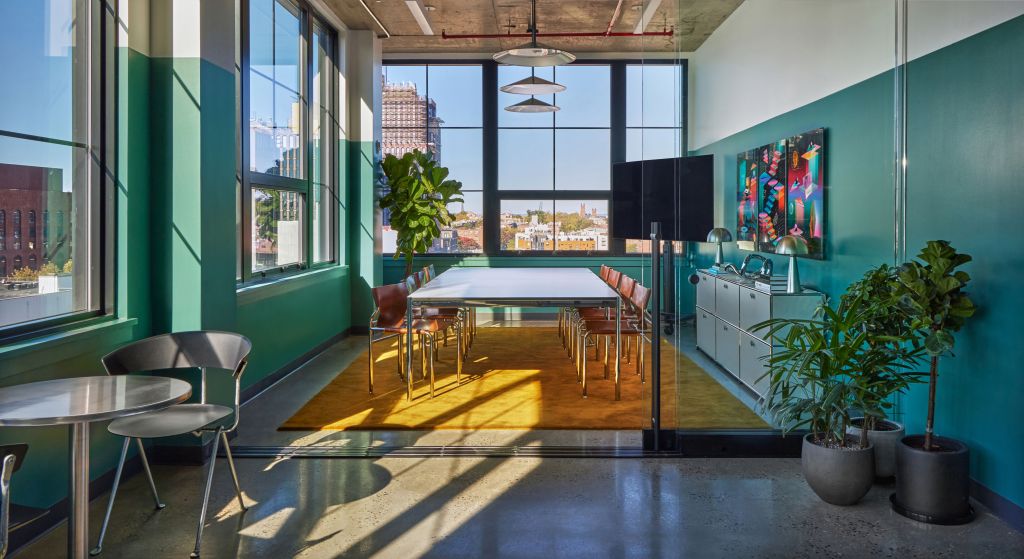
Good morning!
The ambitious yet controversy-ridden women’s co-working space The Wing shut down nearly a year and a half ago, leaving behind a complex legacy. Part of that legacy is its clubs, where members paid upward of $2,700 annually to access amenities like furniture rumored to be designed specifically for women’s bodies, lactation and makeup rooms, and events featuring A-listers like Hillary Clinton, Alexandria Ocasio-Cortez, and Jennifer Lopez.
Following its closure in August 2022, many inquired about the whereabouts of the club’s furniture, and its viral estate sale turned into a frenzied affair sale earlier this year.
Now, as companies grapple with getting employees to return to the office, some are turning to Laetitia Gorra, formerly The Wing’s director of interiors, to help create their own stylish workspaces. Even though she left The Wing three years ago, clients are still inspired by Gorra’s work at the co-working company.

“People come to us, and they're like, ‘We love what you did with The Wing. We don't want it to be so pink, but we want to inspire people; we want to get people in the office,’” says Gorra, who founded ROARKE Design Studio with fellow Wing alum Sarah Needleman in 2020.
The solution, according to Gorra, is for corporate offices to find the balance between a typical workstation where employees can be productive and also providing an area for them to mingle with colleagues and form bonds.
“It depends from client to client what it is they're looking for, but we try to bring to the table that mentality of: Let's pretend that your employees are paying members,” says Gorra. “What are the little things that are going to bring them in here so that they [say], ‘Oh, wait, I don't want to sit on my couch. I want to go and sit with that cool view, in that comfortable chair, with plants surrounding me, being inspired by color, and all of that.’”



Gorra's forte is creating open-concept offices, with features like round tables to encourage more face-to-face interactions versus cubicles, phone booths or breakout rooms for individual or small teamwork, and spaces for informal connections (like hosting a book club, for example). Another element is ensuring the office design aligns with the company’s brand and culture.
With one client, cereal brand Magic Spoon, conference rooms in its New York headquarters are themed after different cereal flavors. Much of the furniture was found secondhand, from sites like 1stdibs and Chairish, or repurposed from previous tenants.
“It really feels like you're walking into a cereal box when you look at the space. It feels like you're part of the brand when you're in there,” says Gorra.
Another client’s office, tech company Trail of Bits, features a showcase of old computers and wall art like blown-up images of computer motherboards.
“We try to [make] people understand what the space is that they're walking into,” says Gorra. “And also feel inspired by it, comfortable in it, and able to get their work done.”
Paige McGlauflin
paige.mcglauflin@fortune.com
@paidion







